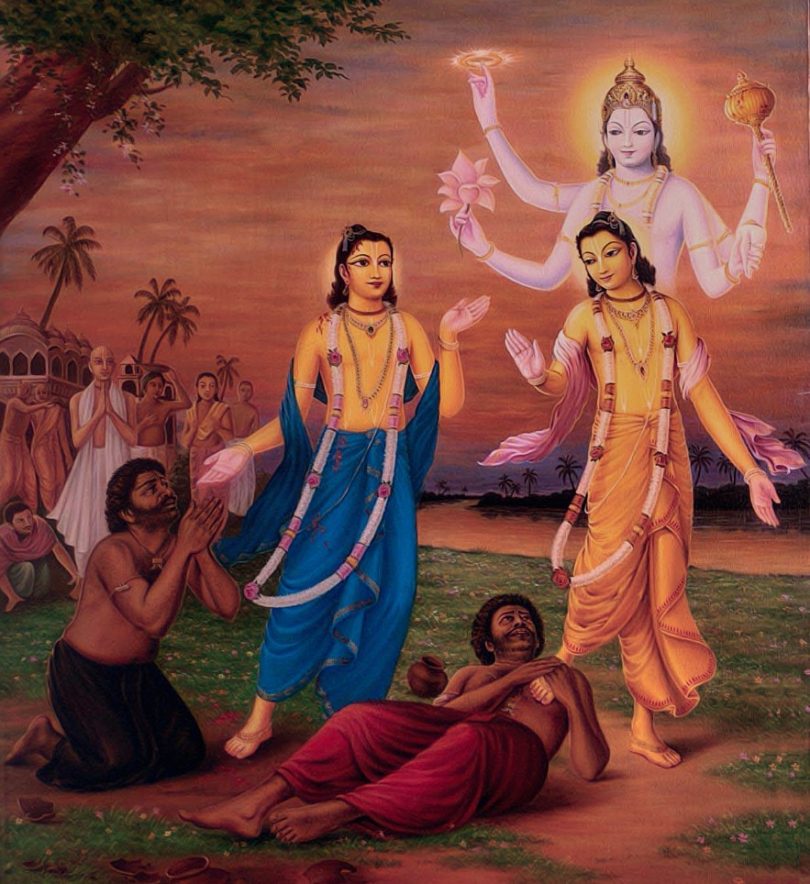Question:1. Also, if a man is born as sudra, is he not eligible to study the shastras, because the sudra’s karma is to help all other varnas?
Answer by Romapada Swami:
As you stated in the initial premise of your question, one cannot be designated as sudra solely on the basis of birth, but by guna and karma.
A sudra-by-birth was not NECESSARILY forbidden from study of shastras, as evidenced in the Upanisadic narration of Gautama Rsi accepting Satyakama Jabala as his disciple. Only a well-examined pupil with high character and brahminical training was given access to Vedas, in order to preserve the potency and purity of the Vedas, and to prevent misuse of knowledge.
The essence of the Vedas is presented in a simple form in the Puranas and Itihasas; in fact Srila Vyasadeva compiled these just for the benefit of the sudras and dvija-bandhus (those born of brahmana parents but lacking the prerequisite brahminical qualification.) By purificatory processes, these persons can also achieve perfections (BG 9.32).
In the Vedic setting, if it is ascertained that one has the nature of a sudra, they were given vocational education; literacy for the masses was not given great importance in Vedic society. However, as the sudras gave service to the other varnas, it was in turn the duty of brahmanas to systematically disseminate shastric knowledge to the general public. In fact, the temple in a Vedic community was to serve just this purpose – as a center of learning – where the mercantile and laborer classes would come and learn about religious principles through art, drama and regular discourses on scriptural teachings.
Question: 2. In which category, among the varnas, do the candalas belong to? Will they be able to realize Godhead if they observe chanting?
Answer by Romapada Swami:
Candala referred to a class of people lower than the sudras, and generally dog-eaters. They were considered to be ‘fifth-class’ and outside the varnashrama system.
There are many references in the scripture specifically about candalas becoming elevated through devotional service. Bhagavatam states that even a candala who has once offenselessly chanted the Holy Name becomes immediately eligible to perform Vedic sacrifices, and becomes worshipable for all. (SB 3.33.7) In the Padma Purana it is said that an unalloyed vaishnava, even if born in a dog-eating family, is qualified to become a Guru (Quoted in Bhagavad-gita 2.8, Purport). Krishna also assures that even those born in sinful families can attain the supreme destination by taking shelter of Him.







